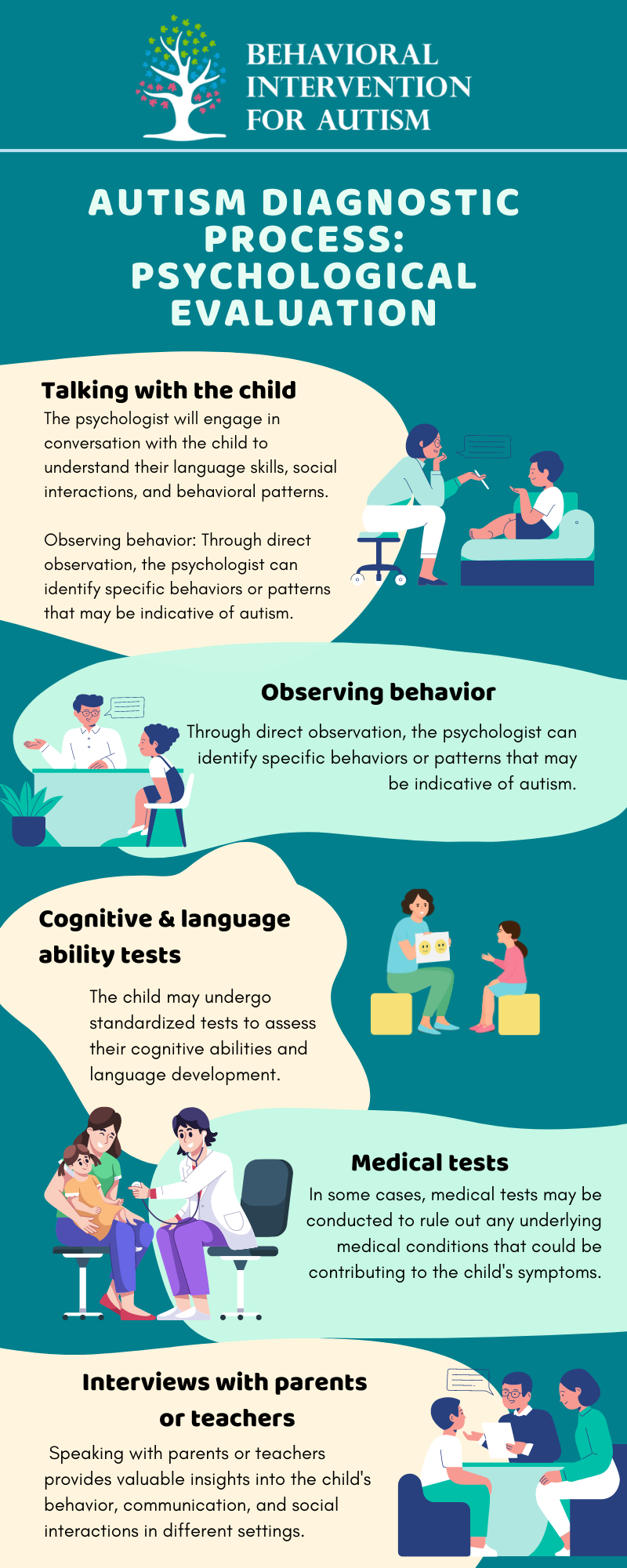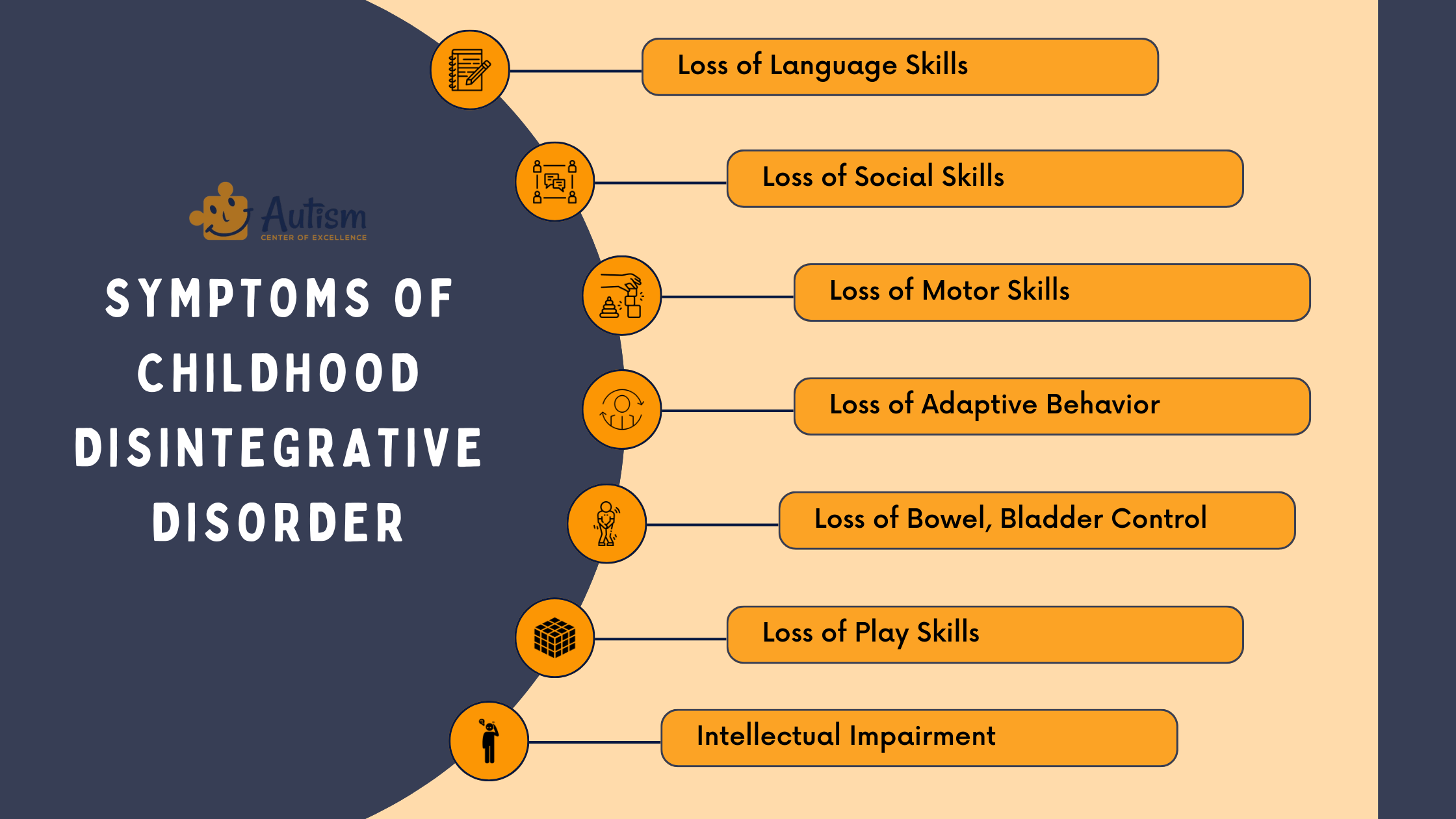Navigating sensory overload with support from Autism Spectrum Therapies professionals
Navigating sensory overload with support from Autism Spectrum Therapies professionals
Blog Article
Secret Signs and Symptoms to Acknowledge in Individuals With Behavior Autism
When you come across someone with behavior autism, recognizing essential signs and symptoms is vital. In addition, sensory sensitivities can lead to frustrating experiences.
Obstacles in Social Interactions
When you engage with someone on the autism range, you may see they struggle with social signs and interaction. These difficulties can make social interactions feel overwhelming for them.
Furthermore, you might discover that they choose routines and familiar settings, which can limit their willingness to engage in brand-new social situations. They may chat concerning their rate of interests in terrific information without observing if you're interested when they do engage. This can cause one-sided conversations that leave you really feeling disconnected. Understanding these difficulties can aid you come close to communications with empathy and persistence, promoting a much more comfortable environment for both of you.
Difficulty With Verbal and Non-Verbal Interaction

Non-verbal communication can be a lot more challenging. You might see a lack of eye contact or limited use of motions, which can make interactions feel unpleasant. Facial expressions might not always line up with the conversation, resulting in confusion about their feelings. Identifying these indicators is crucial, as it helps you much better assistance and involve with people on the autism spectrum. By understanding their communication challenges, you can cultivate much more meaningful connections and provide a much more encouraging atmosphere.
Repetitive Actions and Routines
Interaction challenges usually go along with other indicators of autism, such as repeated behaviors and a solid preference for routines. You may observe that individuals with autism usually participate in certain, repetitive activities, like hand-flapping, shaking, or repeating phrases. These actions can provide convenience and a feeling of control in a typically frustrating globe.
When they adhere to a structured timetable,Routines are similarly crucial; many individuals prosper. You might discover that adjustments to these regimens can result in considerable distress. If they have an everyday ritual of consuming morning meal at a certain time or complying with a particular course to school, any type of interruption can trigger anxiousness.
Identifying these patterns helps you comprehend their habits and provide assistance. By fitting their requirement for regular and allowing recurring actions, you can develop an extra comfortable atmosphere that alleviates their obstacles.
Sensory Sensitivities

Typical Sensory Triggers
Sensory sensitivities can substantially impact every day life for people with autism, as specific stimulations typically set off overwhelming responses. Usual sensory triggers consist of loud noises, bright lights, and solid scents. You might see that sudden noises, like alarms or alarms, cause anxiousness or distress. Fluorescent illumination in shops can really feel unpleasant and rough. Textures can also play a considerable duty; harsh materials or certain food textures may be intolerable for you. Furthermore, crowded places can overwhelm your detects, making it hard to focus or relax. Comprehending these triggers can help you manage your environment better. By understanding what affects you, you can take steps to lessen discomfort and improve your daily experiences.
Behavior Feedbacks Explained
Recognizing your behavioral feedbacks to sensory level of sensitivities is important, as they usually expose how you connect with the globe. You could see that particular noises, lights, or appearances overwhelm you, bring about stress and anxiety or discomfort. When encountered with these stimuli, you could withdraw, cover your ears, and even react aggressively. These responses aren't just traits; they're your way of coping with overstimulation. You might also find yourself seeking particular sensory experiences, like deep pressure or silent atmospheres, to aid ground on your own. Identifying these patterns helps you recognize your requirements much better and can guide just how you communicate them to others. By acknowledging your sensory level of sensitivities, you can function towards developing a setting that really feels a lot more comfy and manageable for you.
Coping Methods Introduction
Identifying your sensory sensitivities is simply the first step; now it's time to discover coping strategies that can assist you take care of those experiences efficiently. Begin by developing a sensory toolkit customized to your needs. This might consist of noise-canceling earphones, fidget playthings, or calming scents. Establishing an organized routine can also provide predictability, decreasing anxiety around sensory overload. When you feel overwhelmed, take breaks in a peaceful room to collect yourself. Practicing mindfulness methods like deep breathing can aid ground you in the minute. Additionally, communicate your needs with those around you; having helpful loved ones can make a big difference. Remember, finding what works ideal for you may take time, so be patient and open to attempting brand-new methods.
Restricted Passions and Focus
While numerous individuals establish a vast array of passions, those with autism commonly demonstrate restricted passions and an intense emphasis on details subjects. You might observe that someone with autism can spend hours delving right into their favorite topic, whether it's a particular kind of train, a details movie, or a clinical principle. This intense emphasis isn't simply a leisure activity; it can come to be a main component of their identification and social interactions.
You may discover that conversations revolve around these rate of interests, and they might struggle to engage in broader subjects. By comprehending and acknowledging these limited interests, you can foster a supportive atmosphere where they feel valued and recognized, permitting for more meaningful connections and interactions.
Psychological Regulation Troubles
People with autism frequently encounter obstacles in psychological law, which can be affected by their intense emphasis on particular rate of interests. You might see that when an individual is deeply taken part in a preferred activity, they can experience solid emotions, whether excitement or irritation. This strength in some cases makes it tough for them to move equipments or handle their feelings when points do not go as intended.

Variability in Developmental Landmarks
When it comes to developing turning points, you'll observe that individuals with autism typically show a wide range of irregularity. You may see a child succeed in language skills but battle with social interactions.
It's necessary to recognize that each person's journey is distinct. Some might establish complex abilities early, only to face difficulties in the future. Others might take longer to accomplish standard turning points but then flourish in specific areas. Observing these patterns can aid you comprehend their toughness and requires much better.
Often Asked Questions
Exactly How Is Autism Diagnosed in Children and Grownups?
To identify autism in adults and youngsters, professionals assess behavior, interaction skills, and social communications. If an individual fulfills the standards for autism range disorder., they typically make use of standardized tests, interviews, and monitorings to establish.
Exist Different Kinds Of Autism Spectrum Disorders?
Yes, there are various kinds of autism range disorders, consisting of Asperger's disorder and prevalent developing disorder-not otherwise defined. Each kind differs in seriousness and characteristics, so recognizing these distinctions can help you far better support people with autism.
What Treatments Are Efficient for People With Autism?
When taking into consideration effective treatments for individuals with autism, you'll find alternatives like Applied Behavior Evaluation, speech therapy, and occupational more info therapy. Each technique can assist enhance communication, social skills, and daily operating tailored to specific requirements.
Can People With Autism Lead Independent Lives?
Yes, people with autism can lead independent lives. With the right support, abilities training, and sources, you can assist them develop self-sufficiency, take care of day-to-day jobs, and thrive in numerous atmospheres, cultivating their self-reliance.
Exactly How Can Families Assistance Liked Ones With Autism?
You can support your liked ones with autism by developing a structured environment, encouraging their interests, exercising persistence, cultivating communication, and advertising social skills. Commemorate their accomplishments, despite how small, and develop a supportive neighborhood.
Although several people on the autism range can make use of and understand language, they commonly encounter substantial obstacles with both non-verbal and spoken communication. Acknowledging these indications is important, as it assists you much better support and engage with people on the autism range. You might observe that people with autism often engage in details, repeated activities, like hand-flapping, rocking, or duplicating phrases.Sensory sensitivities can considerably impact daily life for people with autism, as specific stimuli typically activate overwhelming reactions.When it comes to developmental milestones, you'll notice that people with autism commonly show a vast range of irregularity.
Report this page